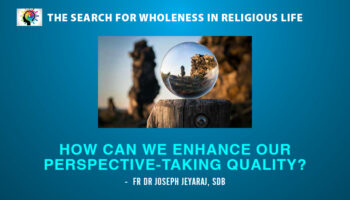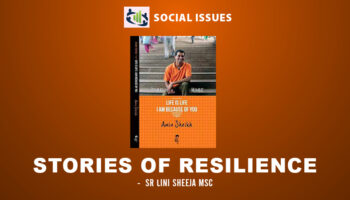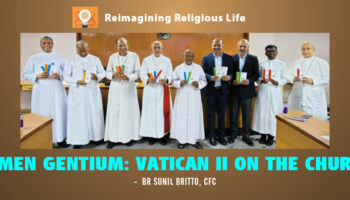Last year, I presented ten suggestions for Lent (MAGNET, February 2017). We all need to do the ten things proposed in that article: Reflect, Pray, Fast, Help, Visit, Share, Apologize, Forgive, Appreciate, Read the Bible. They are perennially valid, and you can see them, if you wish, on our website (www.crimagnet.com).
This year, we try another approach. What to give up for Lent. After all, many Catholics think of Lent as the time when they give up something they normally enjoy (meat, alcohol, sweets, etc.). There are more harmful things we need to give up. Here is a list.
- Blaming: Blaming serves no purpose. If I hit a cup on the table by mistake, and blame the one who put it there, and he blames me for being careless, nothing useful is achieved. It makes much more sense to ask: What can we do about it?
- Gossip: When he launched the Year of Mercy, Pope Francis told a group of religious, “If we abstain from gossip during this year, it will be a great Year of Mercy.” He compared gossip to leaving a bomb at a crowded bus stand and walking away. Gossip does enormous harm, which we cannot erase.
- Jealousy: Jealousy is common and destructive. It will destroy our happiness and lead us to harm others. The jealous person “feels” that if others are praised or liked, he/she is losing out. Hence they tend to speak ill of the person they are jealous of. The real reason for jealousy is our insecurity. If we can look at our areas of insecurity and do something about it, we learn to handle our life positively. Otherwise, we put down others, and make fools of ourselves.
- Worry: Jesus taught us that worry is a useless emotion. Worry means: To imagine the worst possible outcome as real, and to relive it repeatedly. If I get a little pain, I imagine myself as having the worst forms of cancer, and lose out on living my life today. The positive attitude opposed to worry is TRUST. Trust God. Trust the good people in your life. Trust yourself. There are hardships, yes, but we can find a solution to most problems. Worrying (which can become a habit) serves no purpose. Trusting prayer and diligent action can solve most problems.
- Laziness: Why postpone the hard work? Why not get up a little earlier and pray? Why not leave the desk and do regular exercise? Why not clean your room, wash your clothes and complete other chores that have been piling up? Why not leave my surroundings clean, and free of litter?
- Addictions: An addiction is something that has become stronger than your best intentions and plans. If it is strong or lasting, you may need help. If it is taking you away from people, and hinders you from doing your duties well, it is evidently dangerous. The addiction can be to alcohol, pornography, food, TV, computer games, social media, shopping, gossip or any other destructive habit.
- Fear: There is one sentence repeated in the Bible 365 times: “Fear not!” God does not want us to live in fear; He invites us to trust and to live in love. Fear can make us betray our conscience (as Peter did when he denied Christ). When our hearts are ruled by fear, we cannot love. A family, or a formation house, or a religious community marked by fear is damaging for the members. Love, instead, transforms the heart, gives us tremendous inner strength, and makes us do good cheerfully.
Jesus did not come among us to teach us any special diet. What he did teach and show was something incomparably more important and more beautiful: How to move from fear to love, from selfishness to compassion, from worry to trust—and to build a world where human beings see and treat one another as God’s beloved sons and daughters.
May Lent (or any other religious observance) not distract us from the essentials, but help us become what God wants us to be. A religious practice is meaningful if it helps me become a better person, and makes our earth a better home for all.

To subscribe to the magazine Contact Us





